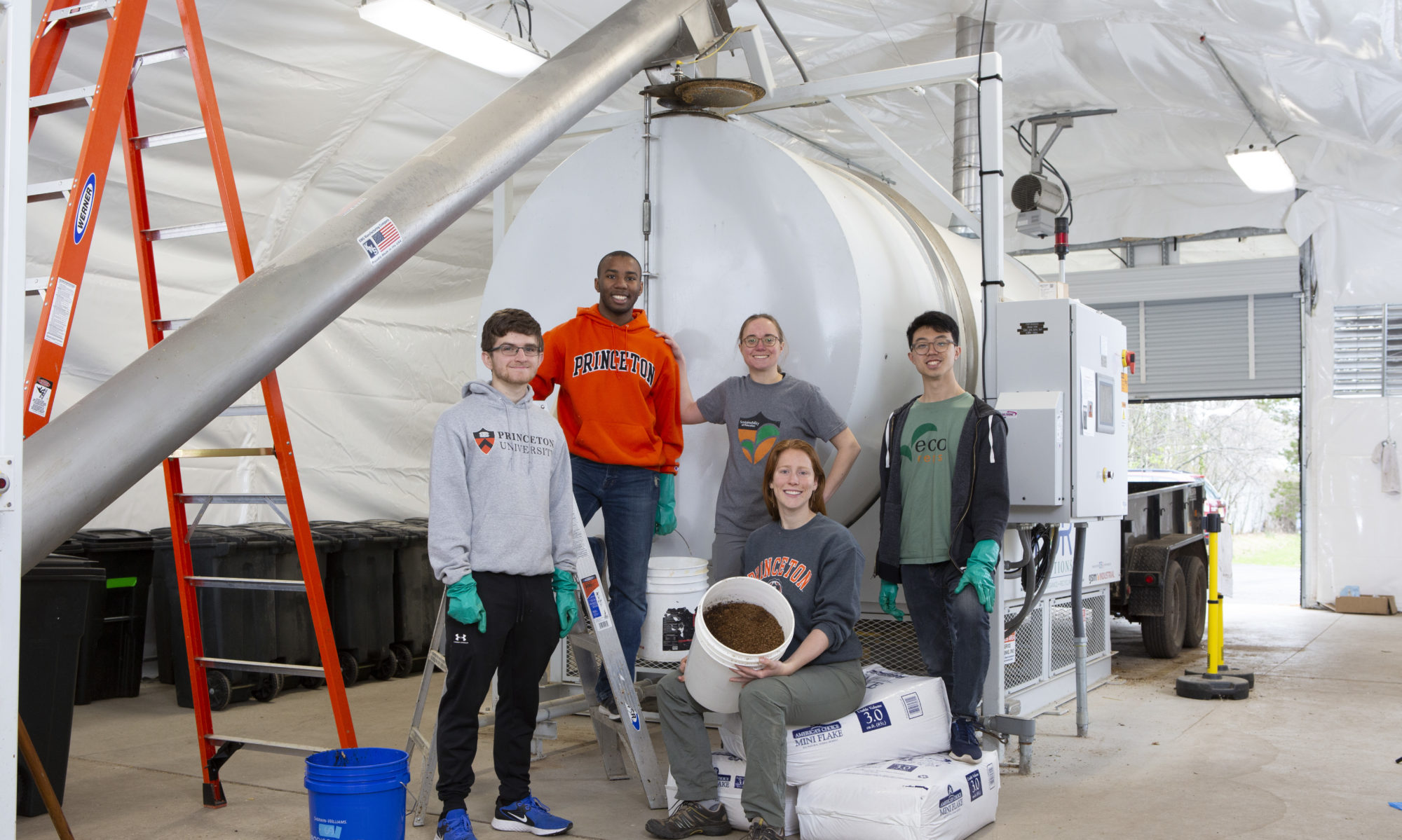Good afternoon from the S.C.R.A.P. Lab!
The big news this week was the announcement of two research projects involving the S.C.R.A.P. Lab that were awarded Dean for Research Innovation Funds for the Campus as a Lab.
Adapted abstracts of the two projects that will start this summer are below:
Building better compost
Xinning Zhang, assistant professor of geosciences and the Princeton Environmental Institute, will lead undergraduate research that will explore conditions for creating high-quality compost that is high in nutrients and low in greenhouse gas emissions. The team will test various proportions of food waste, carbon inputs and air as well as operating conditions to identify conditions that create compost with superior levels of nutrients while reducing the natural emission of greenhouse gases due to biodegradation of compostable materials. The team will also explore the use of waste cardboard and other feedstocks from the campus to replace the current wood shavings.
Farming on campus lands
A project led by Daniel Rubenstein, the Class of 1877 Professor of Zoology, a professor in the Department of Ecology and Evolutionary Biology, and director of the Princeton Environmental Institute’s certificate Program in Environmental Studies, and Gina Talt, food systems project specialist with the Office of Sustainability — will explore how to improve Princeton’s farmland stewardship practices in ways that encourage sustainability while improving agricultural yield. Princeton University enables local farmers to raise crops on large portions of its land, but in recent years farmers have reported finding it hard to make a profit due to crop consumption by deer. Additionally, years of growing monoculture crops with herbicides and fertilizers have led to nutrient-deficient soils and a system reliant on fossil-fuel-based inputs to suppress weeds.
The project will involve undergraduates in examining the cost-effectiveness of fencing the lands to keep out deer while also exploring a variety of soil enriching and anti-weed control methods. The team will grow field corn in one-acre test plots, including fenced and non-fenced areas, to compare how farming practices affect crop growth, soil health and farmland profitability. The sustainable practices to be tested include applying compost and compost teas made from campus food scraps, planting cover crops during the off-season, and weeding with equipment rather than applying herbicides.
Read the original article on the Princeton homepage here: https://www.princeton.edu/news/2019/05/08/five-projects-will-explore-sustainability-using-princeton-campus-laboratory
Weekly Data: 4/26 – 5/2
| Total Food | Campus Center/Cafes | Academic /Residential Buildings
|
Wood shavings (BA/CS) | % BA/CS |
Compost Off-loaded | GHG Emissions Saved (MTCO2eq) | |
| Week Totals (lbs.) | 3,214 | 2,972 | 242 | 1,035 | 32% | 3,000 | |
| CUMULATIVE (lbs) | 77,829 | 76,736 | 1,092 | 24,162 | 31% | 66,000 | 23 |

2 Replies to “The Weekly ComPOSTer (5/10): Exciting Research Plans!”
Comments are closed.